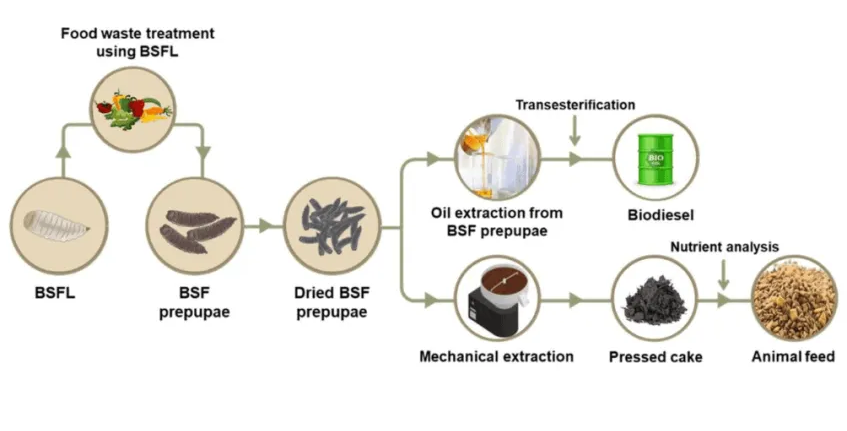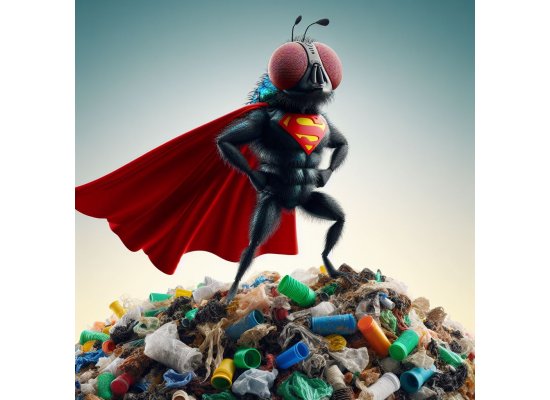In recent years, the world has witnessed a growing awareness of the importance of recycling and sustainability. As we strive to reduce our ecological footprint, innovative solutions have emerged to tackle the challenge of waste management. One such solution that has gained momentum is insect bioconversion. This eco-friendly process is not only an efficient means of waste disposal, but also an essential step up the resource recycling ladder.
The Basics of Insect Bioconversion
Insect bioconversion is a natural process that harnesses the remarkable abilities of insects to transform organic waste into valuable resources. This sustainable practice is primarily centered around two types of insects: black soldier flies (Hermetia illucens) and mealworms (Tenebrio molitor). These insects possess unique digestive systems that allow them to break down and metabolize various organic materials, including food scraps, agricultural residues, and even sewage sludge.

Benefits of Insect Bioconversion:
Waste Reduction
One of the most significant advantages of insect bioconversion is its capacity to drastically reduce waste volume. Black soldier fly larvae and mealworms can consume vast quantities of organic matter in a short period, efficiently converting it into biomass. This reduces the need for landfills and incineration, ultimately decreasing greenhouse gas emissions and environmental pollution.

Valuable Byproducts
Insect bioconversion produces two valuable byproducts: nutrient-rich insect biomass and nutrient-rich frass (excreta). The insect biomass is a protein-rich feedstock, suitable for livestock and aquaculture. The frass, on the other hand, is a potent organic fertilizer, rich in essential nutrients such as nitrogen, phosphorus, and potassium. These byproducts help close the loop on resource recycling, contributing to more sustainable agriculture and animal husbandry practices.

Sustainable Animal Feed
Insect-based protein derived from bioconversion is gaining popularity as a sustainable alternative to conventional animal feed sources like soy and fishmeal. It offers several advantages, including reduced environmental impact, lower land and water usage, and reduced dependence on wild fish stocks. As the global demand for animal protein continues to rise, insect-based feed has the potential to alleviate pressure on natural resources.
Circular Economy
Insect bioconversion aligns perfectly with the principles of a circular economy. By converting organic waste into valuable resources, it promotes a closed-loop system where materials are continually recycled and reused. This reduces the need for resource extraction, lowers energy consumption, and minimizes waste disposal, contributing to a more sustainable and resilient ecosystem.

Economic Opportunities
The insect bioconversion industry presents significant economic opportunities. As the demand for sustainable waste management solutions and insect-based products grows, it can foster the development of new businesses, job creation, and economic growth. This industry not only tackles environmental challenges but also stimulates innovation and entrepreneurship.
Conclusion
Insect bioconversion is emerging as a powerful tool on the resource recycling ladder, offering a sustainable, efficient, and eco-friendly way to manage organic waste while producing valuable byproducts. By reducing waste volume, producing nutrient-rich feedstock and fertilizer, and contributing to a circular economy, insect bioconversion helps us move closer to a more sustainable future. As we face increasing pressure on our planet's resources, these tiny heroes have the potential to play a significant role in building a more sustainable and resilient world.
For more information:
Else if you would like to book industry keynote speaker Bob Holtermans for your event - https://www.insectengineers.com/about-us/speaker-bobholtermans
